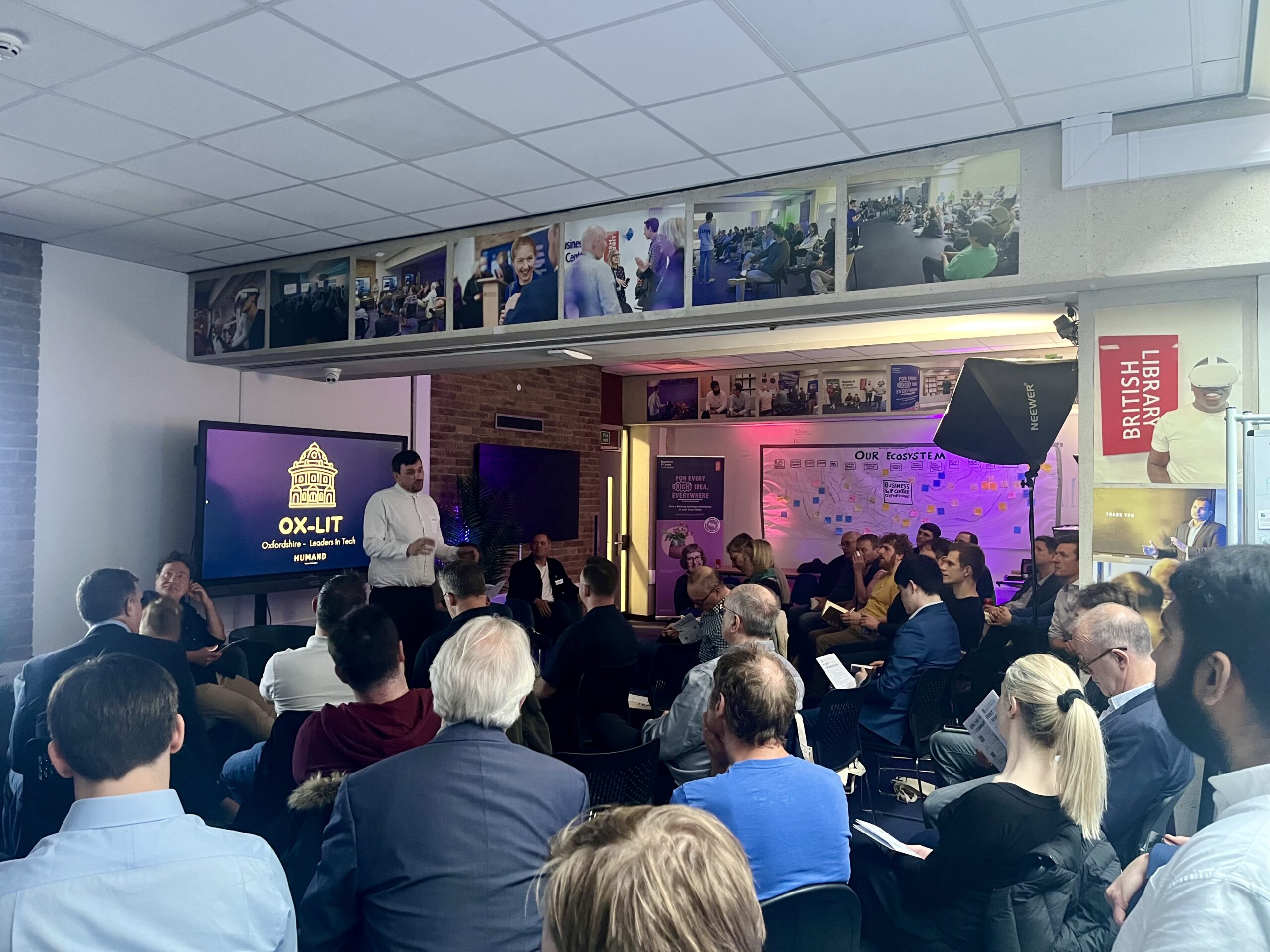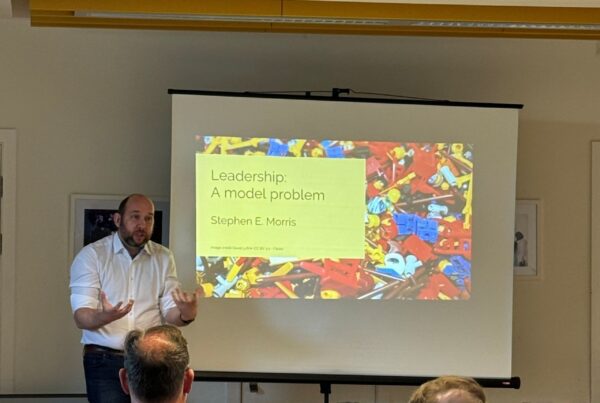On July 3, 2024, the Oxford Leaders in Tech (OXLIT) group held a noteworthy meetup at the Business and Intellectual Property Centre (BIPC) in Oxford. Sponsored and hosted by Humand Talent, the event focused on current and future trends in software testing and quality assurance (QA). It drew a diverse group of tech professionals and enthusiasts. The evening was led by Joseph Edney from Humand Talent, who facilitated insightful discussions and ensured the event ran smoothly. Here’s a detailed recap of the event.
Keynote Presentations:
1. Barney Quinn: “ESG and the Impact of AI in the Boardroom”
Barney Quinn from Insoft opened the event with an insightful presentation on the integration of Environmental, Social, and Governance (ESG) principles with AI in corporate governance. Quinn discussed how AI can enhance governance and risk management, highlighting both the potential benefits and challenges. He emphasized the need for board members to actively engage with AI technologies to ensure proper governance and mitigate risks. His talk provided valuable perspectives for those looking to responsibly integrate AI into their organizational strategies.
2. Paul Mowat: “Revitalising QA: Embracing Pragmatic Approaches”
Paul Mowat from Infinity Tech Consulting shared his experiences and insights on the evolution of QA. His presentation focused on adopting pragmatic approaches to QA to remain relevant in today’s fast-paced tech environment. Mowat emphasized the importance of soft skills, such as communication and emotional intelligence, in fostering collaboration within tech teams. He illustrated how a holistic approach to QA can drive efficiency and improve software quality, drawing from his extensive career in QA leadership.
3. Peter Schrammel: “Does AI-Generated Code Need to Be Tested?”
Peter Schrammel from Diffblue concluded the presentations with a thought-provoking discussion on the necessity of testing AI-generated code. Schrammel explored the complexities of ensuring AI-generated code meets user requirements and expectations. He demonstrated how tools like Diffblue Cover can generate unit tests that help understand and verify code behavior. Schrammel stressed the importance of combining automated verification with human validation to ensure robust and reliable software.
Networking and Continued Conversations
After the keynote presentations, attendees moved to a nearby pub for continued conversations and networking. This informal setting allowed participants to delve deeper into the topics discussed, share their experiences, and explore potential collaborations. The lively discussions covered practical applications of AI in software testing, the evolving roles of QA professionals, and the strategic importance of ESG in tech leadership.
Key Takeaways:
- AI in Testing: AI tools can significantly enhance the testing process by generating unit tests and providing insights into code behavior. However, human validation remains crucial to ensure the software meets user needs.
- Evolving QA Roles: QA professionals must adopt a broad skill set, including soft skills, to stay relevant in an industry rapidly adopting new technologies and methodologies.
- ESG and AI: Responsible AI integration can drive growth and efficiency. Boards must understand and govern AI initiatives to mitigate risks and leverage benefits effectively.
Upcoming Event: Panel Discussion on Team Topologies
The next OXLIT event will be a panel discussion on “Team Topologies,” scheduled for September 12, 2024. This event will explore the organisational patterns and dynamics that can help teams deliver high-quality software more efficiently. It’s an excellent opportunity to learn from experts and discuss how to structure teams for optimal performance and innovation.
Event Details:
- Date: September 12, 2024
- Time: 6:00 PM – 8:00 PM
- Venue: Business and Intellectual Property Centre (BIPC), Oxford
For more information and to RSVP, visit the Oxford Leaders in Tech Meetup page.
The Oxford Leaders in Tech meetup on July 3, 2024, provided valuable insights and fostered meaningful connections among tech professionals. As the tech landscape continues to evolve, events like these are essential for staying informed and engaged with the latest developments.




